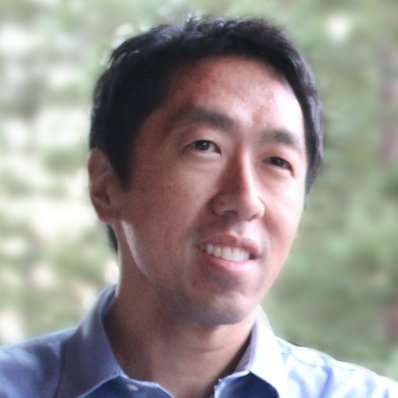Search results for NobelPrize
People
Not Found
Tweets including NobelPrize
🖼️ Create Meme Image about #NobelPrize#
Trending today as the 2024 Nobel Prize laureates are announced, sparking global discussions.
Post it in the thread👇
#createmeaow# #MEAOW#
0
0
49
66
20
this lamb chop is sooo good the cook deserve a nobel prize seriously https://t.co/noUXZCf0sr

0
0
0
0
0
Some people today are discouraging others from learning programming on the grounds AI will automate it. This advice will be seen as some of the worst career advice ever given. I disagree with the Turing Award and Nobel prize winner who wrote, “It is far more likely that the programming occupation will become extinct [...] than that it will become all-powerful. More and more, computers will program themselves.” Statements discouraging people from learning to code are harmful!
In the 1960s, when programming moved from punchcards (where a programmer had to laboriously make holes in physical cards to write code character by character) to keyboards with terminals, programming became easier. And that made it a better time than before to begin programming. Yet it was in this era that Nobel laureate Herb Simon wrote the words quoted in the first paragraph. Today’s arguments not to learn to code continue to echo his comment.
As coding becomes easier, more people should code, not fewer!
Over the past few decades, as programming has moved from assembly language to higher-level languages like C, from desktop to cloud, from raw text editors to IDEs to AI assisted coding where sometimes one barely even looks at the generated code (which some coders recently started to call vibe coding), it is getting easier with each step.
I wrote previously that I see tech-savvy people coordinating AI tools to move toward being 10x professionals — individuals who have 10 times the impact of the average person in their field. I am increasingly convinced that the best way for many people to accomplish this is not to be just consumers of AI applications, but to learn enough coding to use AI-assisted coding tools effectively.
One question I’m asked most often is what someone should do who is worried about job displacement by AI. My answer is: Learn about AI and take control of it, because one of the most important skills in the future will be the ability to tell a computer exactly what you want, so it can do that for you. Coding (or getting AI to code for you) is a great way to do that.
When I was working on the course Generative AI for Everyone and needed to generate AI artwork for the background images, I worked with a collaborator who had studied art history and knew the language of art. He prompted Midjourney with terminology based on the historical style, palette, artist inspiration and so on — using the language of art — to get the result he wanted. I didn’t know this language, and my paltry attempts at prompting could not deliver as effective a result.
Similarly, scientists, analysts, marketers, recruiters, and people of a wide range of professions who understand the language of software through their knowledge of coding can tell an LLM or an AI-enabled IDE what they want much more precisely, and get much better results. As these tools are continuing to make coding easier, this is the best time yet to learn to code, to learn the language of software, and learn to make computers do exactly what you want them to do.
[Original text: https://t.co/HdI3Jb9HmF ]
Show more
0
0
532
12.2K
2.9K
A new legal letter aimed at OpenAI lays out in stark terms the money and power grab OpenAI is trying to trick its board members into accepting — what one analyst calls "the theft of the millennium."
The simple facts of the case are both devastating and darkly hilarious.
I'll explain for your amusement.
The letter 'Not For Private Gain' is written for the relevant Attorneys General and is signed by 3 Nobel Prize winners among dozens of top ML researchers, legal experts, economists, ex-OpenAI staff and civil society groups. (I'll link below.)
It says that OpenAI's attempt to restructure as a for-profit is simply totally illegal, like you might naively expect.
It then asks the Attorneys General (AGs) to take some extreme measures I've never seen discussed before. Here's how they build up to their radical demands.
For 9 years OpenAI and its founders went on ad nauseam about how non-profit control was essential to:
1. Prevent a few people concentrating immense power
2. Ensure the benefits of artificial general intelligence (AGI) were shared with all humanity
3. Avoid the incentive to risk other people's lives to get even richer
They told us these commitments were legally binding and inescapable. They weren't in it for the money or the power. We could trust them.
"The goal isn't to build AGI, it's to make sure AGI benefits humanity" said OpenAI President Greg Brockman.
And indeed, OpenAI’s charitable purpose, which its board is legally obligated to pursue, is to “ensure that artificial general intelligence benefits all of humanity” rather than advancing “the private gain of any person.”
100s of top researchers chose to work for OpenAI at below-market salaries, in part motivated by this idealism. It was core to OpenAI's recruitment and PR strategy.
Now along comes 2024. That idealism has paid off. OpenAI is one of the world's hottest companies. The money is rolling in.
But now suddenly we're told the setup under which they became one of the fastest-growing startups in history, the setup that was supposedly totally essential and distinguished them from their rivals, and the protections that made it possible for us to trust them, ALL HAVE TO GO ASAP:
1. The non-profit's (and therefore humanity at large’s) right to super-profits, should they make tens of trillions? Gone. (Guess where that money will go now!)
2. The non-profit’s ownership of AGI, and ability to influence how it’s actually used once it’s built? Gone.
3. The non-profit's ability (and legal duty) to object if OpenAI is doing outrageous things that harm humanity? Gone.
4. A commitment to assist another AGI project if necessary to avoid a harmful arms race, or if joining forces would help the US beat China? Gone.
5. Majority board control by people who don't have a huge personal financial stake in OpenAI? Gone.
6. The ability of the courts or Attorneys General to object if they betray their stated charitable purpose of benefitting humanity? Gone, gone, gone!
Screenshotting from the letter:
(I'll do a new tweet after each image so they appear right.) 1/
Show more

0
0
20
610
126



